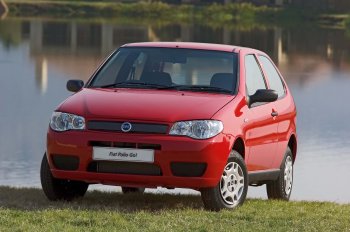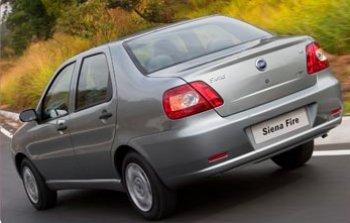|
Ambitious plans to build a swage of
Fiat models in Iran through a local joint venture operation are finally coming
to fruition according to national media sources.
The project, which was first
unveiled two years ago, saw a agreement between Fiat and the Pars Industries
Development Foundation (PIDF) to create a joint venture project in Iran, known
as Bonyan Auto. In early 2003 almost a hundred of Iran's top managers in
industry joined Mr. Manouchehr Gharavi to establish PIDF, a holding company with
long-term plans to produce 1 million cars a year and boost Iran's position as a
global vehicle manufacturer. Already Iran is well inside the top-20 biggest car
making nations.
The partnership between Fiat and
PARS called for the Iranian partner to invest 200 million euros in a new factory
with a production capacity starting at 100,000 cars a year, but rising in stages
to 250,000. A whole swage of models were earmarked for local production
including the Palio, Siena, Strada and the Palio 'Adventure', and an ambitious
plan was also floated to make the country a 'hub' for the manufacturing of
Fiat's CNG (Compressed Natural Gas) powered models, starting with the Multipla
and Doblò. This last concept slotted neatly in with the Iranian government's
wish to purse other technologies to reduce Iran's dependence on oil. Initial
local content was targeted at 35 percent, and at the signing ceremony in
February 2005 Tehran the-then Fiat Auto CEO Herbert Demel said: "This initiative
is important because it forms part of our strategy for strengthening Fiat Auto’s
presence in markets with a high growth potential in the automobile sector." He
also added: "Our goal is to transfer modern technology to Iranian automobile
industry."
At the signing ceremony Manouchehr
Gharavi, the Chairman of PIDF said:
"Thanks to our cooperation agreement,
Fiat is back in our country after 50
years. We are delighted to be adding
Fiat automobiles to our factory and
introducing its successful models to the
Iranian market. Fiat is one of the most
prestigious names in the automotive
industry. It has consistently developed
cars that have been affordable,
practical and have greatly contributed
to the motorisation of entire countries.
|
 |
|
A whole swage of Fiat models are being earmarked for
production in Iran including the Palio (above),
Siena, Strada and the Palio 'Adventure'. |
|
|
 |
|
The first projected car to be built by Bonyan Auto,
the Siena (above), is now expected to roll off the
production lines as early as October. |
|
|
"Fiat is a world leader in the area of bi-fuel vehicles and its technology in
CNG engines, which have great potential especially in the Iranian market, is
second to none. Our plans call for establishing an important and consistent
market share in Iran. Furthermore, our new venture is destined to play an
important role in the expansion of Iran’s automotive supplier industry, further
enhancing its expertise as it joins Fiat Auto’s worldwide suppliers’ network,"
added Mr Gharavi.
However only very
sporadic news has been heard of the project over the last two years; but with
problems reportedly having been resolved, the first projected car, the Siena, is
expected to roll off the production lines as early as October. Fiat's Turkish
joint venture partner, Tofas, has been logistically involved in the project. The
company says it will begin by building taxi versions of the Siena and ambulance
versions of the Doblò, adding other models to the mix as it progresses and with
investment still set to hit around 200 million euro mark. The cars are expected
to cost between 90 to 170 million
rials.
The Iranian car industry is growing
steadily; the market's best-selling model is the locally-built Kia Pride. Iran
Khodro is the major domestic car maker, with a majority share of the market. It
produces a diverse range of model including a local-built car, the Samand, which
is closely based on the Peugeot 405 and which exported to selected countries;
last year it also started building the Renault/Dacia Logan. The Iranian
government has recently become involved in a new high-profile joint venture,
setting up a car factory in Venezuela to build the Samand. This model is also
assembled in Belarus and Azerbaijan, and further countries are expected to build
it in the near future. Due to high import tariffs Iranian manufacturers assemble
a wide range of cars under licence; these including models from VW, Nissan,
Renault, Proton, Hyundai, Suzuki and Citroen.
|
|
|
|